
In popular memory the repeal of US Prohibition in 1933 signaled alcohol’s decisive triumph in a decades-long culture war. But as Lisa Jacobson reveals, alcohol’s respectability and mass market success were neither sudden nor assured. It took a world war and a battalion of public relations experts and tastemakers to transform wine, beer, and whiskey into emblems of the American good life. Alcohol producers and their allies—a group that included scientists, trade associations, restaurateurs, home economists, cookbook authors, and New Deal planners—powered a publicity machine that linked alcohol to wartime food crusades and new ideas about the place of pleasure in modern American life. In this deeply researched and engagingly written book, Jacobson shows how the yearnings of ordinary consumers and military personnel shaped alcohol’s cultural reinvention and put intoxicating pleasures at the center of broader debates about the rights and obligations of citizens.
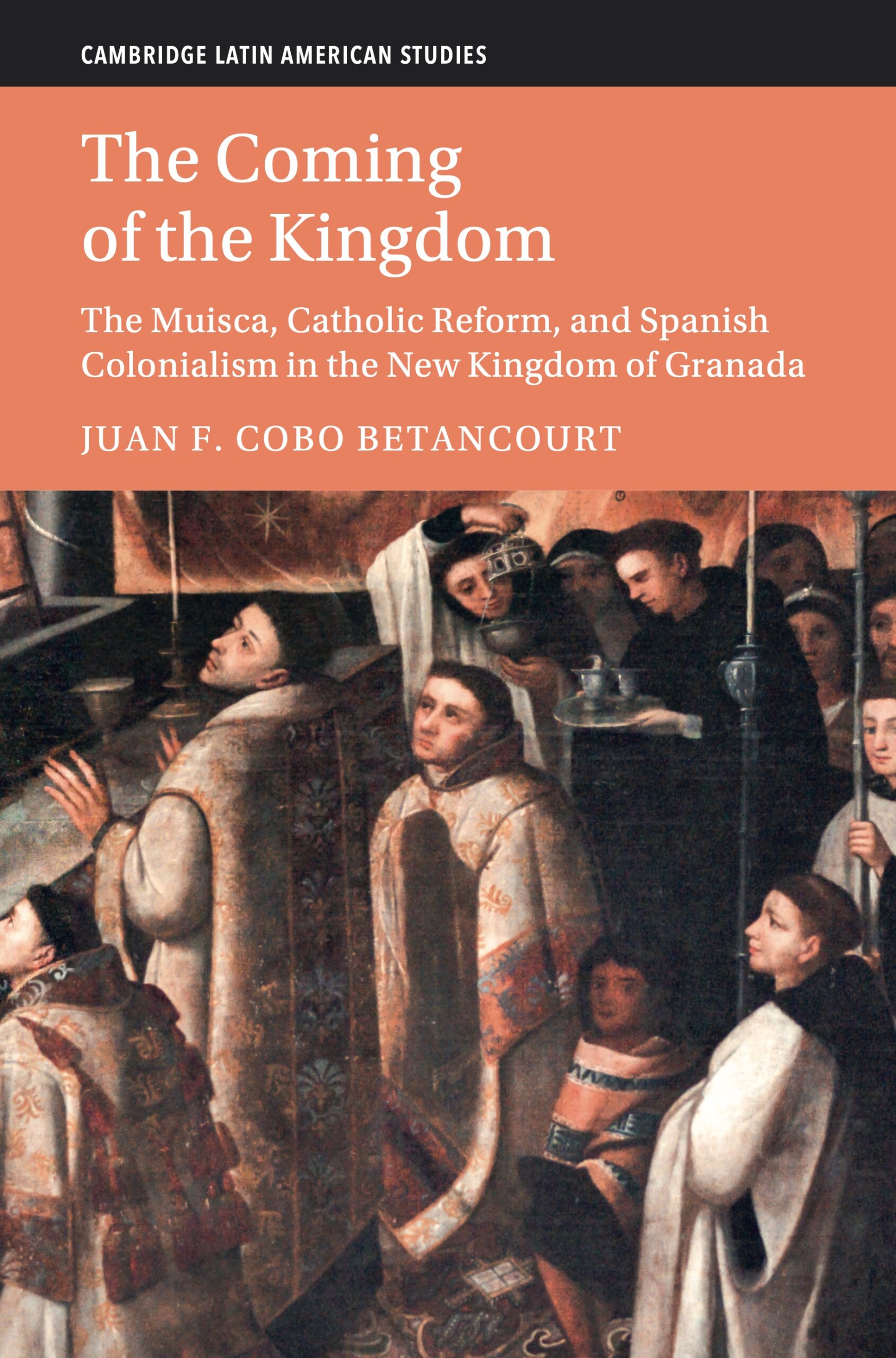
The Coming of the Kingdom explores the experiences of the Indigenous Muisca peoples of the New Kingdom of Granada (Colombia) during the first century of Spanish colonial rule. Focusing on colonialism, religious reform, law, language, and historical writing, Juan F. Cobo Betancourt examines the introduction and development of Christianity among the Muisca, who from the 1530s found themselves at the center of the invaders’ efforts to transform them into tribute-paying Catholic subjects of the Spanish crown. The book illustrates how successive generations of missionaries and administrators approached the task of drawing the Muisca peoples to Catholicism at a time when it was undergoing profound changes, and how successive generations of the Muisca interacted with the practices and ideas that the invaders attempted to impose, variously rejecting or adopting them, transforming and translating them, and ultimately making them their own.
This title is also freely available in Open Access digital edition on Cambridge Core.

An incisive account of the crucial role money played in the formation and development of British North America.
Promise to Pay follows America’s first paper money—the “bills of credit” of British North America—from its seventeenth-century origins as a means of war finance to its pivotal role in catalyzing the American Revolution. Katie A. Moore combs through treasury records, account books, and the bills themselves to tell a new story of money’s origins that challenges economic orthodoxy and mainstream histories. Promise to Pay shows how colonial governments imposed paper bills on settler communities through existing labor and kinship relations, their value secured by thousands of individual claims on the public purse—debts—and the state’s promise to take them back as payment for taxes owed. Born into a world of hierarchy and deference, early American money eroded old social ties and created new asymmetries of power, functioning simultaneously as a ticket to the world of goods, a lifeline for those on the margins, and a tool of imperial domination.
Grounded in sustained engagement with scholarship from multiple disciplines, Promise to Pay breathes new life into old debates and offers an incisive account of the centrality of money in the politics and conflicts of empire, community, and everyday life.

Nothing More than Freedom explores the long and complex legal history of Black freedom in the United States. From the ratification of the Thirteenth Amendment in 1865 until the end of Reconstruction in 1877, supreme courts in former slave states decided approximately 700 lawsuits associated with the struggle for Black freedom and equal citizenship. This litigation – the majority through private law – triggered questions about American liberty and reassessed the nation’s legal and political order following the Civil War. Judicial decisions set the terms of debates about racial identity, civil rights, and national belonging, and established that slavery, as a legal institution and social practice, remained actionable in American law well after its ostensible demise. The verdicts determined how unresolved facets of slavery would undercut ongoing efforts for abolition and the realization of equality. Insightful and compelling, this work makes an important intervention in the history of post-Civil War law.
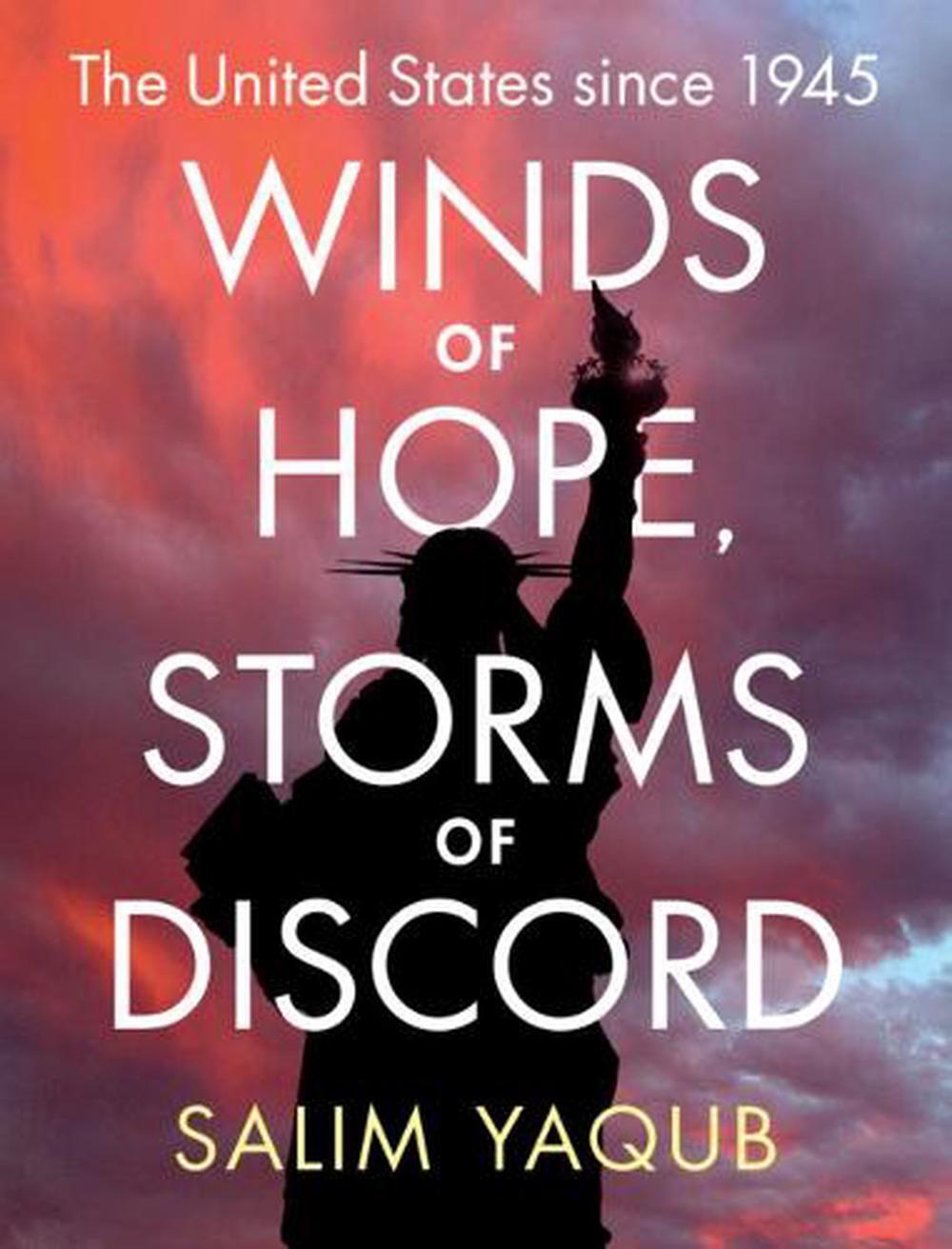
In brisk and engaging prose, this comprehensive introductory textbook traverses the broad sweep of US history since 1945. Winds of Hope, Storms of Discord explores how Americans from all walks of life – political leaders, businesspeople, public intellectuals, workers, students, activists, migrants, and others – struggled to define the nation’s political, economic, geopolitical, demographic, and social character. It chronicles the nation’s ceaseless ferment, from the rocky conversion to peacetime in the early aftermath of World War II; to the frightening emergence of the Cold War and repeated US military adventures abroad; to the struggles of African Americans and other minorities to claim a share of the American Dream; to the striking transformations in social attitudes catalyzed by the women’s movement and struggles for gay and lesbian liberation; to the dynamic force of political, economic, and social conservatism. Carrying the story to the spring of 2022, Winds of Hope also shows how dizzying technological changes at times threatened to upend the nation’s civic and political life.
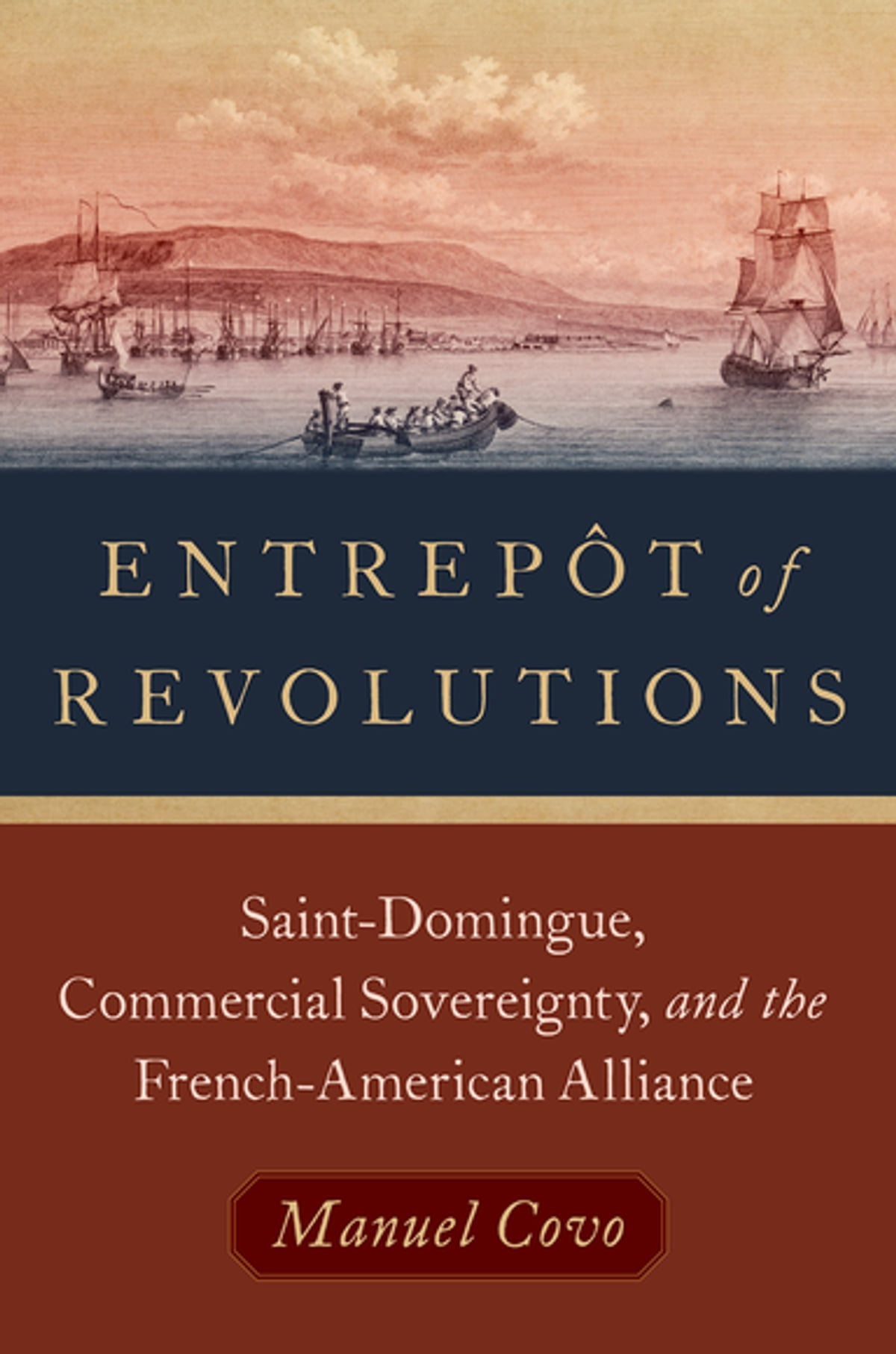
The Age of Revolutions has been celebrated for the momentous transition from absolute monarchies to representative governments and the creation of nation-states in the Atlantic world. Much less recognized than the spread of democratic ideals was the period’s growing traffic of goods, capital, and people across imperial borders and reforming states’ attempts to control this mobility. Analyzing the American, French, and Haitian revolutions in an interconnected narrative, Manuel Covo centers imperial trade as a driving force, arguing that commercial factors preceded and conditioned political change across the revolutionary Atlantic. At the heart of these transformations was the “entrepôt,” the island known as the “Pearl of the Caribbean,” whose economy grew dramatically as a direct consequence of the American Revolution and the French-American alliance. Saint-Domingue was the single most profitable colony in the Americas in the second half of the eighteenth century, with its staggering production of sugar and coffee and the unpaid labor of enslaved people. The colony was so focused on its lucrative exports that it needed to import food and timber from North America, which generated enormous debate in France about the nature of its sovereignty over Saint-Domingue. At the same time, the newly independent United States had to come to terms with contradictory interests between the imperial ambitions of European powers, its connections with the Caribbean, and its own domestic debates over the future of slavery. This work sheds light on the three-way struggle among France, the United States, and Haiti to assert, define, and maintain “commercial” sovereignty. Drawing on a wealth of archives in France, the United States, and the United Kingdom, Entrepôt of Revolutions offers an innovative perspective on the primacy of economic factors in this era, as politicians and theorists, planters and merchants, ship captains, smugglers, and the formerly enslaved all attempted to transform capitalism in the Atlantic world.
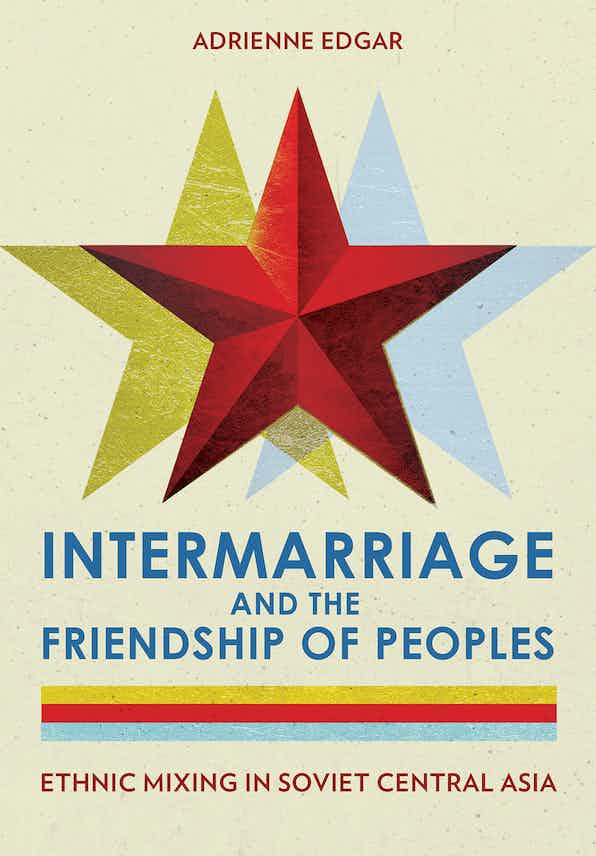
Intermarriage and the Friendship of Peoples examines the racialization of identities and its impact on mixed couples and families in Soviet Central Asia. In marked contrast to its Cold War rivals, the Soviet Union celebrated mixed marriages among its diverse ethnic groups as a sign of the unbreakable friendship of peoples and the imminent emergence of a single “Soviet people.” Yet the official Soviet view of ethnic nationality became increasingly primordial and even racialized in the USSR’s final decades. In this context, Adrienne Edgar argues, mixed families and individuals found it impossible to transcend ethnicity, fully embrace their complex identities, and become simply “Soviet.” Looking back on their lives in the Soviet Union, ethnically mixed people often reported that the “official” nationality in their identity documents did not match their subjective feelings of identity, that they were unable to speak “their own” native language, and that their ambiguous physical appearance prevented them from claiming the nationality with which they most identified. In all these ways, mixed couples and families were acutely and painfully affected by the growth of ethnic primordialism and by the tensions between the national and supranational projects in the Soviet Union. Intermarriage and the Friendship of Peoples is based on more than eighty in-depth oral history interviews with members of mixed families in Kazakhstan and Tajikistan, along with published and unpublished Soviet documents, scholarly and popular articles from the Soviet press, memoirs and films, and interviews with Soviet-era sociologists and ethnographers.
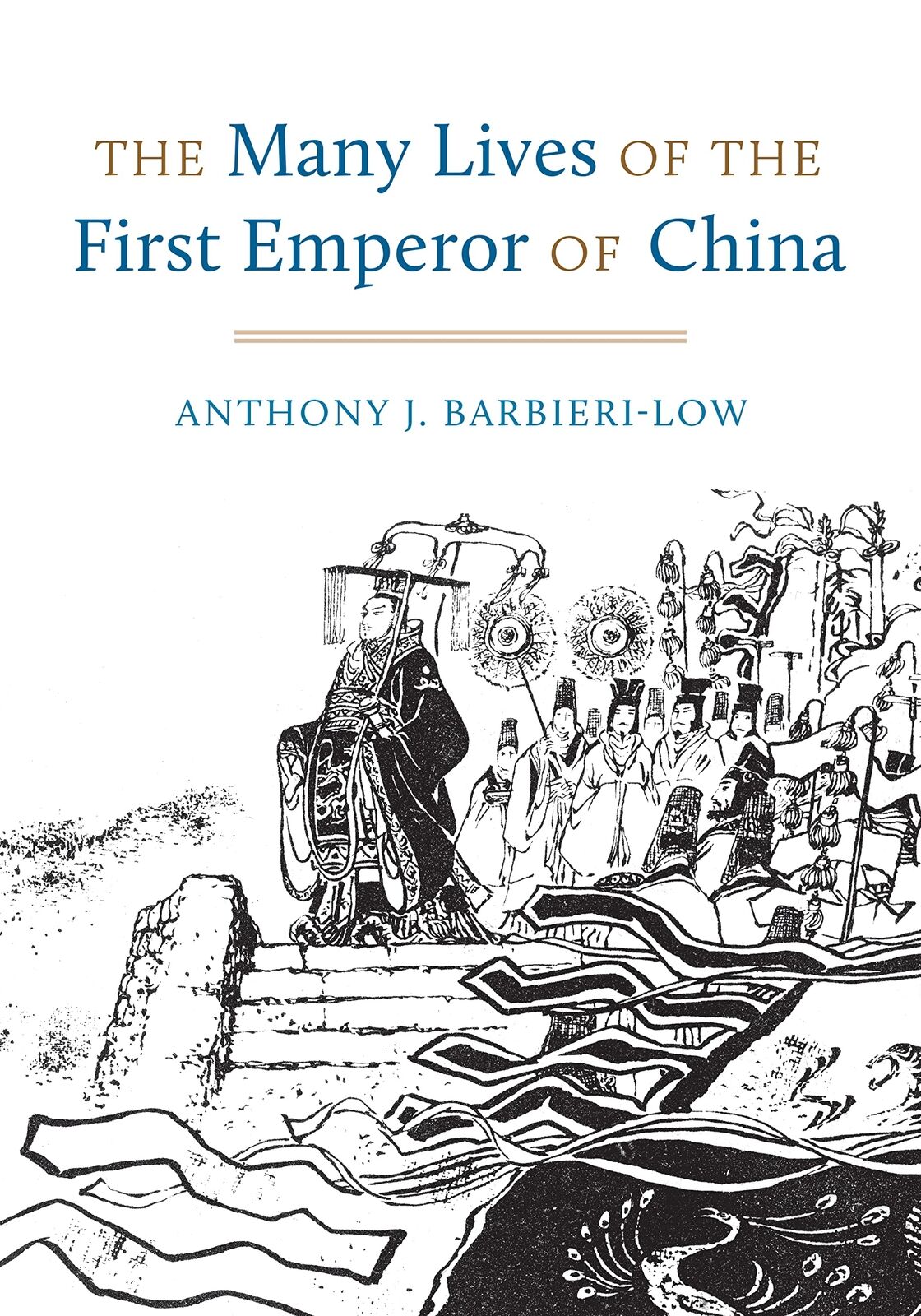
Ying Zheng, founder of the Qin empire, is recognized as a pivotal figure in world history, alongside other notable conquerors such as Alexander the Great, Genghis Khan, and Julius Caesar. His accomplishments include conquest of the warring states of ancient China, creation of an imperial system that endured for two millennia, and unification of Chinese culture through the promotion of a single writing system. Only one biased historical account, written a century after his death in 210 BCE, narrates his biography. Recently, however, archaeologists have revealed the lavish pits associated with his tomb and documents that demonstrate how his dynasty functioned. Debates about the First Emperor have raged since shortly after his demise, making him an ideological slate upon which politicians, revolutionaries, poets, painters, archaeologists, and movie directors have written their own biases, fears, and fantasies. This book is neither a standard biography nor a dynastic history. Rather, it looks historically at interpretations of the First Emperor in history, literature, archaeology, and popular culture as a way to understand the interpreters as much as the subject of their interpretation.
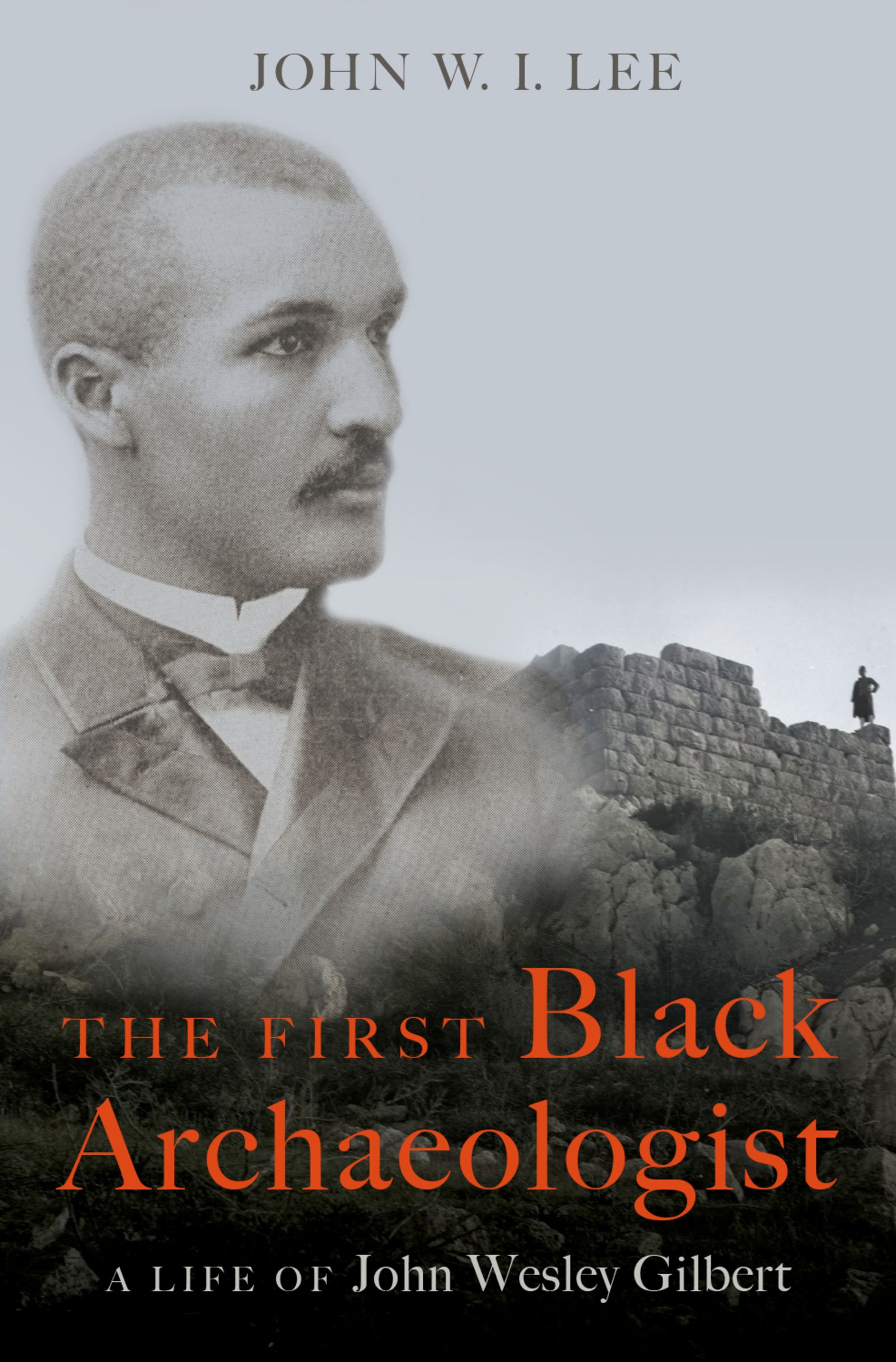
The First Black Archaeologist reveals the untold story of a pioneering African American classical scholar, teacher, community leader, and missionary. Born into slavery in rural Georgia, John Wesley Gilbert (1863-1923) gained national prominence in the early 1900s, but his accomplishments are little known today. Using evidence from archives across the U.S. and Europe, from contemporary publications, and from newly discovered documents, this book chronicles, for the first time, Gilbert’s remarkable journey. As we follow Gilbert from the segregated public schools of Augusta, Georgia, to the lecture halls of Brown University, to his hiring as the first black faculty member of Augusta’s Paine Institute, and through his travels in Greece, western Europe, and the Belgian Congo, we learn about the development of African American intellectual and religious culture, and about the enormous achievements of an entire generation of black students and educators. Readers interested in the early development of American archaeology in Greece will find an entirely new perspective here, as Gilbert was one of the first Americans of any race to do archaeological work in Greece. Those interested in African American history and culture will gain an invaluable new perspective on a leading yet hidden figure of the late 1800s and early 1900s, whose life and work touched many different aspects of the African American experience.

Almost All Aliens offers a unique reinterpretation of immigration in the history of the United States. Setting aside the European migrant-centered melting-pot model of immigrant assimilation, Paul Spickard, Francisco Beltrán, and Laura Hooton put forward a fresh and provocative reconceptualization that embraces the multicultural, racialized, and colonially inflected reality of immigration that has always existed in the United States. Their astute study illustrates the complex relationship between ethnic identity and race, slavery, and colonial expansion.
Examining the lives of those who crossed the Atlantic, as well as those who crossed the Pacific, the Caribbean, and the North American Borderlands, Almost All Aliens provides a distinct, inclusive, and critical analysis of immigration, race, and identity in the United States from 1600 until the present. The second edition updates Almost All Aliens through the first two decades of the twenty-first century, recounting and analyzing the massive changes in immigration policy, the reception of immigrants, and immigrant experiences that whipsawed back and forth throughout the era. It includes a new final chapter that brings the story up to the present day.
This book will appeal to students and researchers alike studying the history of immigration, race, and colonialism in the United States, as well as those interested in American identity, especially in the context of the early twenty-first century.

Since its construction in the early 1960s, the hydroelectric Akosombo Dam across the Volta River has exemplified the possibilities and challenges of development in Ghana. Drawing upon a wealth of sources, A Dam for Africa investigates contrasting stories about how this dam has transformed a West African nation, while providing a model for other African countries. The massive Akosombo Dam is the keystone of the Volta River Project that includes a large manmade lake 250 miles long, the VALCO aluminum smelter, new cities and towns, a deep-sea harbor, and an electrical grid. On the local level, Akosombo has meant access to electricity for people in urban and industrial areas across southern Ghana. For others, Akosombo inflicted tremendous social and environmental costs. The dam altered the ecology of the Lower Volta, displaced 80,000 people in the Volta Basin, and affected the livelihoods of hundreds of thousands of Ghanaians. In A Dam for Africa, Stephan Miescher explores four intersecting narratives: Ghanaian debates and aspirations about modernization in the context of decolonization and Cold War; international efforts of the US aluminum industry to benefit from Akosombo through cheap electricity for their VALCO smelter; local stories of upheaval and devastation in resettlement towns; and a nation-wide quest toward electrification and energy justice during times of economic crises, droughts, and climate change.
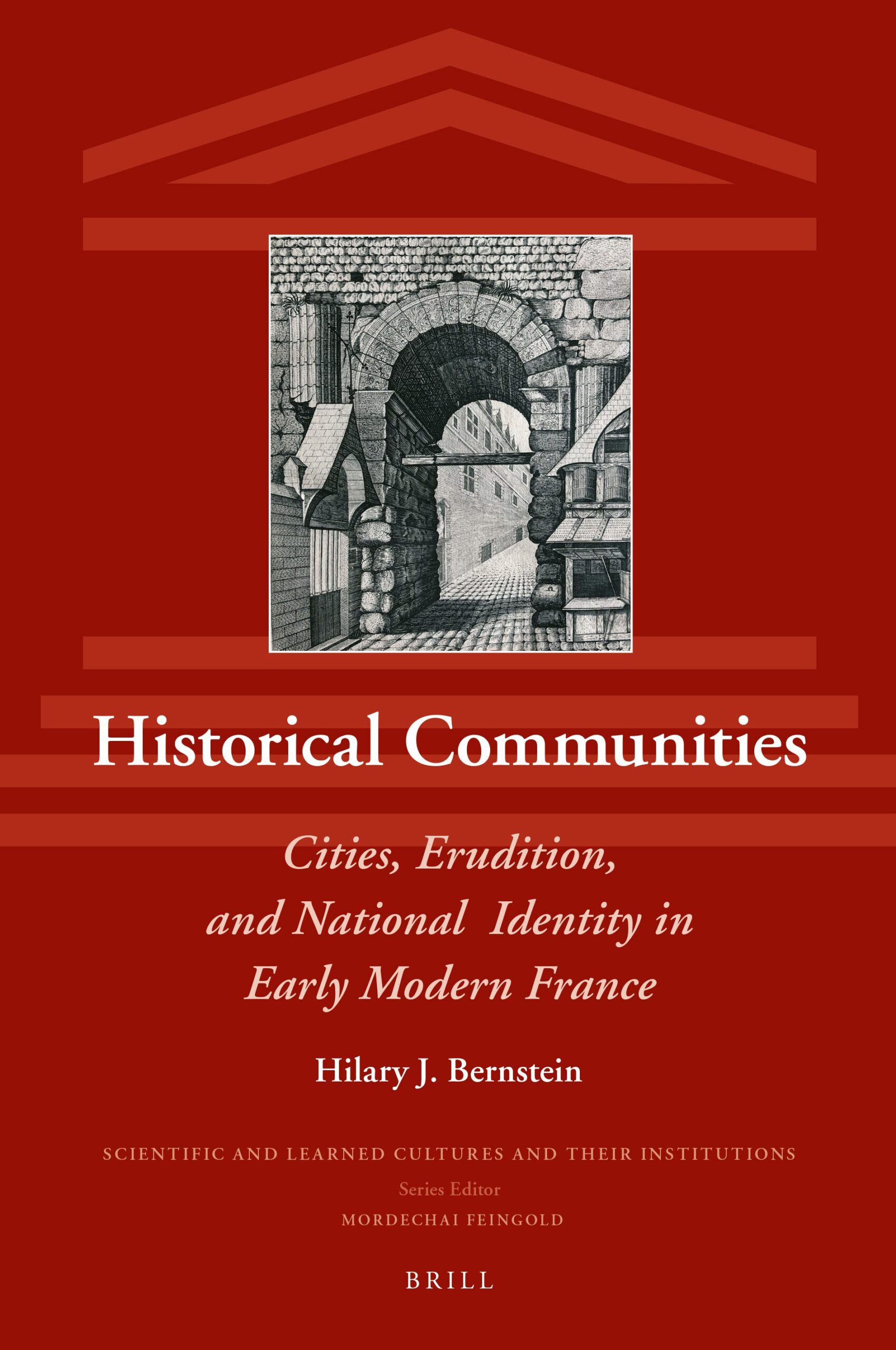
Historical Communities reveals the importance of urban history writing in early modern France, from the 1560s to the 1660s, both for individual towns and the French kingdom. Grounded in published and manuscript works, archival sources, correspondence, and research notes, the book demonstrates how historical traditions mattered to city inhabitants and how local elites combined historical narratives with social and political objectives. Numerous conflicts emerged, including debates regarding city origins, the early French Church, noble genealogies, and the memory of the French Wars of Religion. Simultaneously, provincial scholars maintained active contacts within the Republic of Letters, grounding local research and writing in developing erudite methodologies and making them integral to the ongoing process of forging a French historical identity.

In Souls under Siege, Nicole Archambeau explores how the inhabitants of southern France made sense of the ravages of successive waves of plague, the depredations of mercenary warfare, and the violence of royal succession during the fourteenth century. Many people, she finds, understood both plague and war as the symptoms of spiritual sicknesses caused by excessive sin, and they sought cures in confession.
Archambeau draws on a rich evidentiary base of sixty-eight narrative testimonials from the canonization inquest for Countess Delphine de Puimichel, which was held in the market town of Apt in 1363. Each witness in the proceedings had lived through the outbreaks of plague in 1348 and 1361, as well as the violence inflicted by mercenaries unemployed during truces in the Hundred Years’ War. Consequently, their testimonies unexpectedly reveal the importance of faith and the role of affect in the healing of body and soul alike.
Faced with an unprecedented cascade of crises, the inhabitants of Provence relied on saints and healers, their worldview connecting earthly disease and disaster to the struggle for their eternal souls. Souls under Siege illustrates how medieval people approached sickness and uncertainty by using a variety of remedies, making clear that “healing” had multiple overlapping meanings in this historical moment.

A groundbreaking narrative of how the United States offered the promise of nuclear technology to the developing world and its gamble that other nations would use it for peaceful purposes.
After the Second World War, the United States offered a new kind of atom that differed from the bombs that destroyed Hiroshima and Nagasaki. This atom would cure diseases, produce new foods, make deserts bloom, and provide abundant energy for all. It was an atom destined for the formerly colonized, recently occupied, and mostly non-white parts of the world that were dubbed the “wretched of the earth” by Frantz Fanon.
The “peaceful atom” had so much propaganda potential that President Dwight Eisenhower used it to distract the world from his plan to test even bigger thermonuclear weapons. His scientists said the peaceful atom would quicken the pulse of nature, speeding nations along the path of economic development and helping them to escape the clutches of disease, famine, and energy shortfalls. That promise became one of the most misunderstood political weapons of the twentieth century. It was adopted by every subsequent US president to exert leverage over other nations’ weapons programs, to corner world markets of uranium and thorium, and to secure petroleum supplies. Other countries embraced it, building reactors and training experts. Atomic promises were embedded in Japan’s postwar recovery, Ghana’s pan-Africanism, Israel’s quest for survival, Pakistan’s brinksmanship with India, and Iran’s pursuit of nuclear independence.
As The Wretched Atom shows, promoting civilian atomic energy was an immense gamble, and it was never truly peaceful. American promises ended up exporting violence and peace in equal measure. While the United States promised peace and plenty, it planted the seeds of dependency and set in motion the creation of today’s expanded nuclear club.
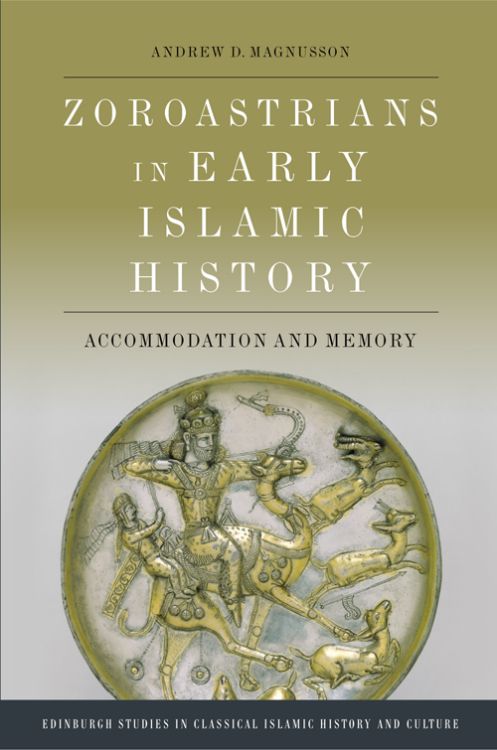
The second Muslim caliph, Umar ibn al-Khattab, once reportedly exclaimed, ‘I do not know how to treat Zoroastrians!’ He and other Muslims encountered Zoroastrians during the conquest of Arabia but struggled to formulate a consistent policy toward the adherents of a religion that was neither biblical nor polytheistic. Some Muslims saw Zoroastrians as pagans and sought to limit interaction with them. Others found ways to incorporate them within the empire of Islamic law. Andrew D. Magnusson describes the struggle between advocates of inclusion and exclusion, the ultimate accommodation of Zoroastrians, and the reasons that Muslim historians have subsequently buried the memory of this relationship.
